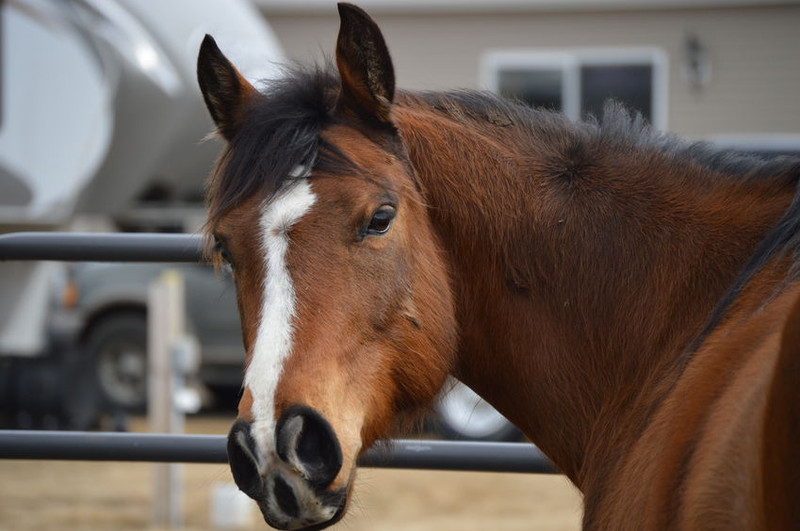When a horse begins to become overly nervous, it can lead to behavioral issues and can also be hard on them physically. They key to resolving nerves is identifying where the nerves come from or what triggers a horse to become upset.
“The Buddy Sour Horse”
Horses are herd animals, which sometimes means our everyday routines can cause them to feel separation anxiety. There are a few things you can do to help your horse become confident away from the “herd.” Keeping horses in separate pens will help prevent horses from “buddying up.” When horses are kept together, you run the risk of both horses becoming distressed when you take one to the show and leave one at home. Other times you may haul both horses to the show and are left with one horse tied to the trailer, very upset, while you ride the other. Preventing a buddy sour horse is an everyday effort. Tying horses on opposites sides of the trailer, providing hay bags to keep them distracted, and minimizing nose to nose contact with the same horse day to day will help keep buddying at bay for most horses.
“The Hot Horse”
Unfortunately, your feeding program can be causing your horse to become overly worked up and nervous. There are a lot of great feeds on the market and while it’s not necessarily the grain making your horse nervous, it can be the excess calories. Horses under light work will not need as many calories as a horse who is under saddle 5-8 hours all day. We must keep in mind that horses are designed to graze all day long. By cutting a horse’s meal back into two calorie packed portions energy levels can rise. If we do not work these calories off, we may be left with an overly energetic horse. If your horse seems to never quite level out with riding, try increasing turn out time and forage. Feed as much fiber possible and add grain in smaller amounts as needed. A high fiber diet is what is most natural for a horse, when you increase fiber throughout the day, you decrease stomach acid.
“The Horse with an Upset Stomach”
Horses with poor hair coats, lower than desired body scores and loose stool are usually suspected to have gastric upset. Often times nerves are overlooked to be stemming from the stomach if the outside of the horse looks healthy. Unfortunately, when we start to see changes on the outside its possible issues on the inside have been going on for several weeks or longer. As stated above, changing diet to reduce stomach acid can play a role in helping a horse to calm down. Stomach acid will cause a horse discomfort on an empty stomach or while splashing around during exercise, as a result horses may begin to show nervous behavior. Look for small signs like cinchy-ness, a grumpy attitude, or going off of feed or water. Prebiotics and probiotics may help restore microbial balance within your horse’s stomach and gut. When your horse’s gut is balanced and functioning properly, your horse’s attitude, performance and overall health will improve. Remember any time you place your horse in a stressful situation you run the risk of stomach upset.
“The Horse with Underlying Soreness”
Pain can come from many different areas. A horse who has suffered a painful event or has an ongoing soundness problem can begin to act anxious. Even ill-fitting tack can be the culprit behind your horse’s change in attitude. Often times a horse does not appear lame to the untrained eye, but this does not mean there is not an issue below the surface. Consulting with a veterinarian is always a great idea if you are having problems with your horse’s behavior.
Sometimes a horse’s nerves are not a result of buddying up, diet, gastric upset, or pain. Once you have ruled all of these things, calming supplement may help balance your horse’s emotions and behavior. A deficiency of magnesium has been known to lead to agitation and anxiety. Getting to the bottom of a horse’s anxiety may require a bit of time as you work your way through the possible causes, but your end result upon finding out the true issue will make for a much happier horse!

